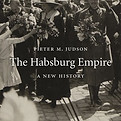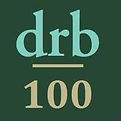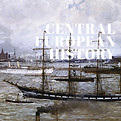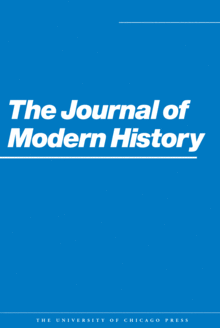Was fascism the immediate result of World War I?
This book shows that the answer is no.
The Fiume Crisis recasts what we know about the birth of fascism, postwar nationalist activism, and the fall of empire after 1918 by telling the story of the three-year period when the Adriatic port-city Fiume (today known by its Croatian name Rijeka) became an international fiasco that stalled negotiations at the 1919 Paris Peace Conference and became the setting for the fifteen-month occupation of the city by the poet-soldier Gabriele D’Annunzio, an occupation many believe Mussolini copied explicitly in his rise to power. The history of Fiume in this period is usually cited as the natural outgrowth of extreme nationalism at the end of World War One, which led to it becoming the birthplace of charismatic fascism. The Fiume Crisis upends this story by showing that what happened in Fiume had little to do with D’Annunzio, charisma, or proto-fascism. Rather, the Fiume Crisis was a result of the dissolution of the Habsburg Monarchy and all the promises and challenges that living in a “ghost state” presented.
The Fiume Crisis is accessibly written to attract readers outside specialist circles and to enliven a world that has been ignored in favor of the sensationalist press attention to stories of communal hate and the media-darling D’Annunzio. Much more was going on than what yellow journalism told us, and this book shows how and why Fiume was one of the first places to give women the vote in Catholic Europe, how life could work when over 60% of its currency was forged, why an entire police force refused to give over nationality figures to the state, and how an ethnically diverse population (about 49% mother-tongue Italian speakers, 26% mother-tongue Croatian speakers, 13% mother-tongue Hungarian speakers, 5% mother-tongue Slovene speakers, 5% mother-tongue German speakers) could be convinced that annexation to a nation-state notorious for its intolerance was the best way to approach its future.
Awards
Barbara Jelavich Book Prize
Honorable Mention
(2021)
Reill’s delightful book introduces readers to the struggles and triumphs of the multilingual and multiethnic citizens of the Adriatic city of Fiume (today Rijeka) as they navigated a governmental crisis following the dissolution of the Habsburg Empire and struggled to replace the “benefits of cosmopolitan empire.” Left without a national affiliation in 1918 and occupied for more than fifteen months in 1919-1920 by the forces of poet-soldier Gabriel D’Annunzio, who supported Italian annexation of the city, Reill tells the story of the Fiume Crisis from a multiplicity of creative and unexpected angles. We read with equal fascination about high politics and diplomacy, military history, currency reforms, and their impact on everyday social, cultural, and economic life. Reill’s enthusiasm for her topic and its relevance to many of the century’s vexing historical questions jumps off the page as she joyfully narrates the story, which culminates in the rise of fascism and Mussolini’s 1924 annexation of the city. This important contribution to the history of modern Europe reminds us that nationalism is not the only driving force in the wake of empire and that the choice to align with a strong state can be more pragmatic than idealistic.
Early Praise for The Fiume Crisis
Pieter Judson
author of
The Habsburg Empire:
A New History
Alison Frank Johnson
author of
Oil Empire:
Visions of Prosperity in Austrian Galicia
Larry Wolff
author of
Woodrow Wilson and the Reimagining of Eastern Europe
“A superb book, smartly conceived and beautifully written. With a genius for unearthing fascinating stories of local people, then using them to illuminate larger issues, Reill forces us to reconsider in profound ways how we conceive the history of the immediate postwar period in Europe. This history from below questions stale nationalist certainties and depicts vividly how communities worked to create their own options in a challenging postwar world.”
“The Fiume Crisis offers a fundamentally new way of thinking about war and postwar rebuilding. By zooming in to a specific city at the crossroads of many different pasts and multiple possible futures, Reill provides a fresh perspective on who makes history happen—bilingual cabbage sellers and young schoolteachers, emigré lawyers and seductive dockworkers—all those who tried to create a city that could escape the ravages of war and economic devastation. Their creativity and vision, triumphs and failures come alive in this breathtaking story.”
“In this fascinating and important book Reill transforms our understanding of both the Fiume crisis and the whole geopolitical metamorphosis of Europe that followed World War I. She shows that the struggle over the city between Italy and Yugoslavia reflected a much deeper and more complex history of Adriatic identities in a Habsburg and post-Habsburg context.”
Robert Gerwarth
author of
November 1918:
The German Revolution
Tara Zahra
author of
The Great Departure:
Mass Migration from Eastern Europe and the Making of the Free World
Victoria de Grazia
author of
The Perfect Fascist:
A Story of Love, Power, and Morality in Mussolini’s Italy
“A magisterial account of everyday life in the multi-ethnic city of Fiume after the end of the Great War. Moving well beyond the familiar story of the soldier-poet Gabriele D’Annunzio and his occupation of Fiume, Reill succeeds in telling the fascinating story of how a city of considerable cultural complexity dealt with the challenges of being a small successor state in a post-imperial world.”
“A brilliant reevaluation of the nationalist myths and legends that have grown up around the history of Fiume under Gabriele D’Annunzio. Shifting our gaze away from his charismatic personality to the experiences of the citizens of Fiume, Reill demonstrates the persistence of imperial loyalties underpinning their quest for greater autonomy. This book forces us to question what we think we know about the relationship between nationalism and empire in the aftermath of the First World War.”
“In this gem of a book, Reill peels away the sensational stories that made Fiume notorious as both a diplomatic thorn in Woodrow Wilson’s peacemaking and the prancing ground of proto-fascist Gabriele D’Annunzio, revealing a more thrilling, politically meaningful history. In the plucky polyglot city’s colliding authorities, crazy quilt laws, and contradictory wants, Reill vividly captures the human comedy as well as the shoals on which hopes for the Great Peace to follow the Great War foundered.”
Reception of The Fiume Crisis
Aliza Wong's review for Los Angeles Review of Books (for full review, see here)
Tony Barber's review for the Financial Times (see full review here)
Aimee Genell's review in H-Diplo (see full review here).
“Reill opens up an important conversation on What Is History and Who Gets to Write It... With the rigor of a scholar and the artistry of a bard, she finds not just a story to represent the complexities of speaking local problems into a larger global conversation. She finds the story, the case study, the Martin Guerre who articulates a worldview."
Jonathan Bousfield's review in Jutarnji List (see full review in English here and in Croatian here).
"... a boldly original take on the political drama that overtook Rijeka in the years immediately after World War I.... By re-telling the story of Rijeka from a street-level perspective, Reill shows us how the whole of Central Europe felt – and why populations were manoeuvered into accepting new situations... The Fiume Crisis is a thrillingly well-written book."
“Some stories are just too good not to tell,” writes Reill, a University of Miami scholar, as she opens her account of what happened in Fiume — today, the Croatian port-city of Rijeka — immediately after the first world war. The colourful story of Fiume has indeed been told before, but never with so many fresh and fascinating insights as Reill provides in her book."

Michael Martens's review for Frankurter Allgemeine Zeitung (see full review here)
"Combining Italian and Croatian sources ... Dominique Kirchner Reill’s reading [of the Fiume Crisis] offers depth and contours against [traditional interpretations]… Attentive to details and filled with sources Kirchner Reill contradicts the thesis that the entire city between 1919 and 1921 was overwhelmed by D’Annunzio’s charisma.”
"Reill’s book makes us rethink what we thought we knew about the end of empire—not just in Europe but far more broadly... Reill’s book challenges readers to consider deeply unsettling questions about how historians have approached state formation during the interwar years... All of the successor states to the Habsburg, Ottoman, German, and Russian empires dealt with similar, if not the same crises... After reading The Fiume Crisis, it isn’t possible to read the post-war period in the same way."
Marco Bresciani's review for HNet (see full review here)
"...brilliantly written and accurately researched… this approach is based on a radical anti-determinism, one that is sensitive to contingency and to the plurality of alternatives in the historical process… The Fiume Crisis offers a path-breaking contribution in reconsidering the imperial transitions in twentieth-century Europe.”
Aidan O’Malley's review in Dublin Review of Books (see full review here)
"What Reill chronicles with no little élan is not a spectacular rupture with the past ‑ the sort of “holocaust” d’Annunzio announced ‑ but rather a series of, sometimes surprising, continuities…. As the centenary events in Ireland have shown over the past decade, the accommodation and cultivation of diversity are intrinsically linked to probing, questioning and expanding upon given historical narratives. This is precisely what The Fiume Crisis does..."
Zachary Mazur's review in H-Diplo. (see full review here)
"Dominique Kirchner Reill’s vibrantly written new book boldly takes on (at least) two established convictions in the historiography of Europe’s twentieth century.... The contributions of The Fiume Crisis are many, and it is both approachable and useful. This book can be fruitfully assigned to undergraduates and graduates alike because it is eminently readable and of high academic value. It is an excellent product of meticulous research and carefully considered presentation, a beacon for monographs to come."
Marta Verginella's review in Central European History (see full review here)
"Shifting the historiographical focus from the macro to the micro level, from the global to the local and vice versa, allows Reill to draw attention to the specificity of the Fiume crisis and highlight its embeddedness in the broader international postwar context. ... She provides an excellent demonstration of how individuals of both genders responded to watershed institutional and economic changes, how and with which means and ideas they sought to overcome the political and economic crisis that occurred after the disintegration of the Habsburg Empire."
Natka Badurina's review in Fluminensia (see full review in Croatian here)
"In opposition to what has been written before… Dominique Reill’s book reminds us of the importance of learning about alternative historical pathways for understanding the tragedies of the twentieth century…. and how Rijekans at the beginning of the twentieth century were … true Europeans.”
Francesca Rolandi's review First World War Studies (see full review here)
"Reill’s elegantly written book shifts the focus from big events to ordinary people... it explores the many, different, and often contradictory interests hidden behind the label of nationalism...it is an outstanding example of how local lenses can serve to illustrate a European-wide phenomenon, such as postimperial transitions... it will be essential reading, not only for scholars of twentieth-century European history but also for a wider audience interested in issues such as nationalism, political transformations, and the history of everyday life.”
Axel Körner's review in Austrian History Yearbook (see full review here)
"Extremely erudite, well-written, and illustrated with many astonishing photographs from local archives, Reill’s beautiful book presents the Fiume Crisis through several closely related case studies, taking her readers from stories about money, law, and citizenship to accounts of the educational system and the uses of propaganda by the different political agents involved in the crisis."
Laurence Cole's review in Journal of Modern History (see full review in here)
“… lively… Reill’s interesting case study makes an important contribution to the burgeoning literature on post-1918 Europe and the debate on continuities between empires and nationstates. She unearths a lot of intriguing material, and there is much ingenuity and craft to her work. Above all, she provides a welcome focus on urban history and seeks to recover the agency of local historical actors… this accomplished study invites further discussion and research on a key moment in European history. Reill confirms her reputation as a fine scholar, well attuned to the nuances and waves of the Adriatic region’s history.”

RJB Bosworth's review in Literary Review.
"Reill’s depiction of the local, enriched by massive research in Rijeka’s archives (and some at the Vittoriale), is a delight. A readership that should extend well beyond sober scholars will love to hear about the fate of a legally challenged load of cabbages being transported into hungry Fiume (it did not get there), and about the cunning counterfeiters whose business boomed thanks to the large number of different banknotes, restamped or otherwise, that circulated in the area.... Throughout the book, Reill paints deft portraits of people and events. But there is also an intriguing argument. Reill shows that Fiume was not a place of simple definitions."
Ágnes Ordasi's review in Hungarian Historical Review (see full review here)
"Her monograph is impressive in its thoroughness, the precise use of terms, its clever methodological solutions, its welcoming style, and its use of convincing examples based on a rich and diverse collection of sources.”
Ian D. Armour's review in History Today. (see full review here)
"As this impeccably researched and engagingly written book demonstrates, the Habsburg monarchy’s afterlife is often as interesting as its proper history."
Caitlin Murdock's review in Canadian-American Slavic Studies. (see full review here)
"This excellent book will be of interest to scholars of Modern Italy, Eastern Europe, European nationalism, and interwar Europe... Readers will finish this book enthusiastic about Fiume. But they will also come away with new insights into the creative ways that Europeans tackled the aftermath of World War i on the ground…. These pages make the scramble to find food, clothe and educate one’s children, and win residence rights and government protections palpable... Reill highlights the importance of considering both the imperial and the local if we want to understand the end of World War I or the mapping of interwar Europe... And she plunges us into an on the ground tour of colorful, scrappy, resourceful, everyday Fiume to show how those nationalist narratives obscured essential truths about interwar Europe for a century."
Federico Carlo Simonelli's review in Fiume: Rivista di studi adriatici. (see full review here)
"A work that cannot be ignored by either scholars or by those who are in anyway involved with public memory in Italy and Croatia."









_svg.png)












